By Erica Friedman
Here’s a second perspective on the “Outspoken: Queer Cartoonists Represent” panel, following Will Henderson’s report yesterday – Ed.
“It’s a weird time to be a queer cartoonist.” With these words, Jennifer Camper opened up the Outspoken: Queer Cartoonists Represent panel. She noted that, on the one hand, there were more queer cartoonist, more queer works available than ever before, but, with increased visibility there has been backlash. She wanted to introduce us to a variety of artists, from traditional to extremely experimental, but reminded us that it was all words and comics from queer perspective
Blue Delliquanti is based in Mineapolis MN, is the creator of O Human star, and has contributed to Beyond, Smut Peddler anthologies. They spoke of Meal, their upcoming book, which they described as a “YA restaurant romance about bug cuisine” created with Soleil Ho. Blue found themselves very inspired by the food genre of manga, which they consider very queer, citing Fumi Yoshinaga’s What Did You Eat Yesterday as an example. O Human Star, Blue described as an paean to another genre she felt was inherently extremely queer, Artificial Intelligence and robots.
Jay Fuller reads from his work The Boy in Pink Earmuffs, which he described as “loosely biographical” and “reads’” The Sorceress Next Door from The Cardboard Kingdom created with Chad Sell. He emphasized that this is a gender and sexuality-positive book for young kids. An audience member identifies as a librarian, praises the book for filling an important niche.
Cartoonist and librarian Katie Fricas read from her autobiographical work Checked Out. She discussed the freedom she found at the library, the foundational works she read and how it lead to her curren work.
Ivan Velez, who has worked with Marvel and DC and is well-known in the NYC queer comic scene for Tales of the Closet Marvel, DC, anthologies, takled about how his work is political, because all work is political. He talked about his work Wham Kabam, history of People of Color in America, using superhero tropes. He read a piece about taking control of words, specifically word relating to female anatomy.
Annie Mok, a well-known illustrator out of Philly, cartoonist on Autostraddle, spoke of her upcoming autobiography, I remember with Higu Rose. The title comes from a poem in which each line begins “I remember”. She spoke about the place of memory in writing. Memory is slippery, or how a smell transports. Memory is like a hidden secret garden and she wants to write that way.
Phil Jimenez has worked on Wonder Woman, Infinite Crisis, and working on Historia written by Kelly Sue DeConnick. He is one of the most prominent gay creators in mainstream comics, he spoke about his career in terms of what made him happy., being inspired by Lynda Carter’s Wonder Woman as a kid that led to him to superhero comics which he noted were “sooo gay.” He talked about having been able to draw comics for DC with a queer gaze and include gay icons like Tim Gunn on mainstream comics covers.
Belden Sezan (Snapshots of a Girl) is a multimedia artist who spoke about her 2016 project guerilla project spreading postcards of women not traditionally represented around in Istanbul, that she wanted to see women who were more diverse than those represented in media. She spoke of how its important to talk about how we can do something that changes what things are real, not what we are told to see.
Carlo Quispe, a local NYC artists, talked about his comic Hairy Tales, which has been adapted into short animated film. Tales was inspired by horror comics and Mad Magazine. Uranus Comics, he said is to address the anxiety we have about our anus – it’s part of our body, we should enjoy it! Like Ivan he talked about the politics inherent in Art, citing Mark Diana whose work was found to be obscene in Florida, but it’s not in New York.
Jennifer Camper discussed that her comics her version of the world out there because she never saw it represented in anyone else’s art. Her high contrast art style was developed because he was drawing for for publications printed on cheap paper. She also joked that her graphic design was meant to cover her flaws as an artist. She spoke of her upcoming project. It’s fun to make evil dykes, she noted, that aren’t assumed to be evil because they are dykes.
She reads from “Slow, intermittent leak,” about menopause and wrapped up with a plug for the upcoming Queers & Comics conference in NYC in 2019.
Audience questions turned into a lively conversation about the need for and desire from publisher for more queer graphic novels for young readers. Panelists agreed that they are being approached by publishers and the industry is ready for more, which was a very positive note on which to end this amazing panel.


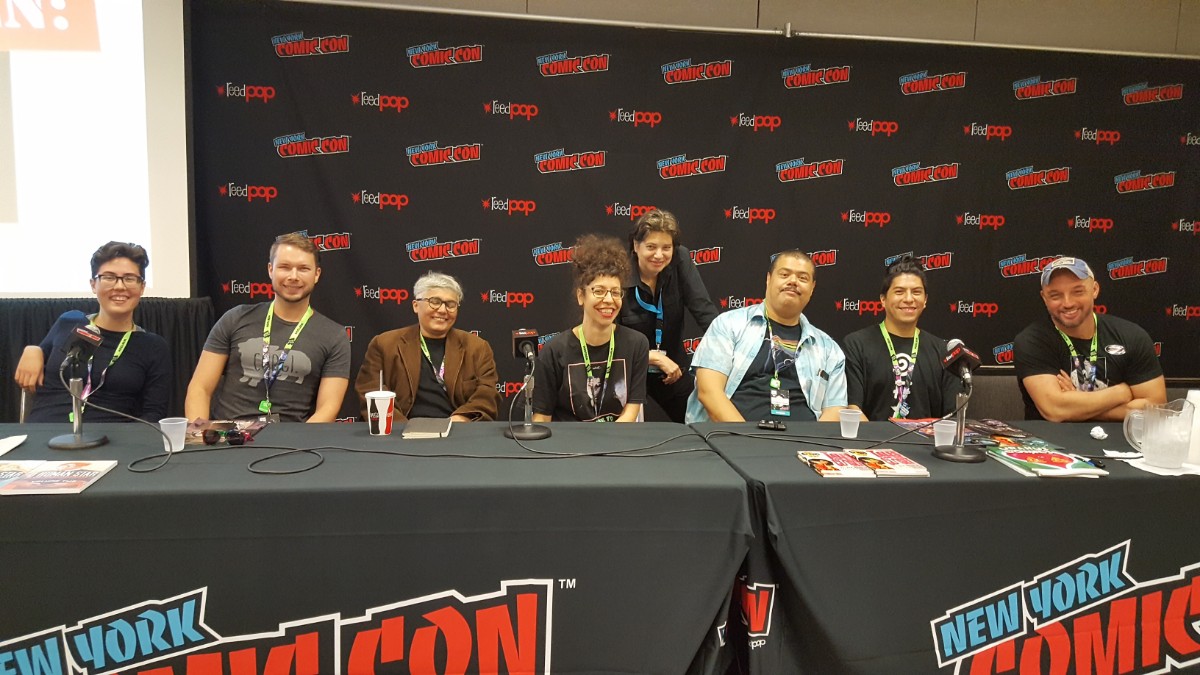
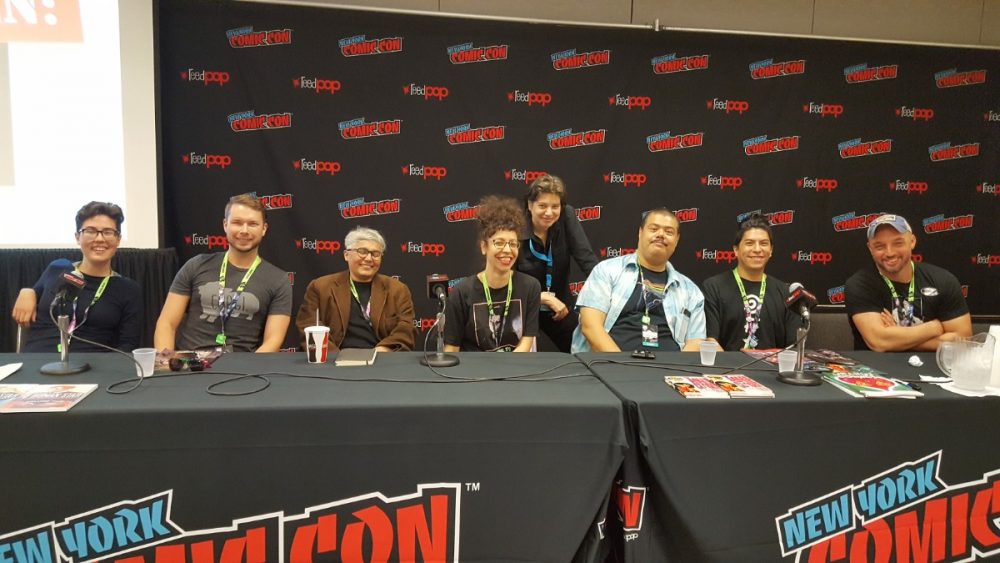
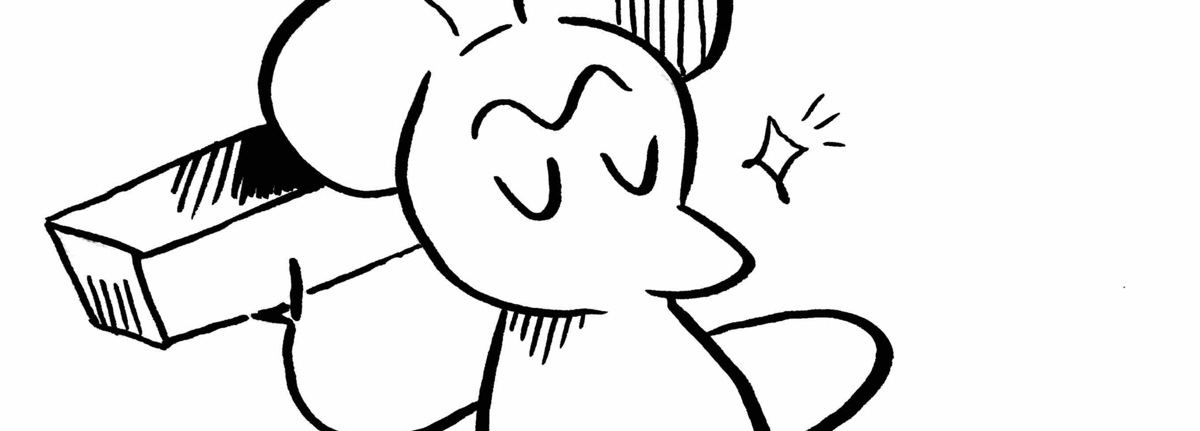
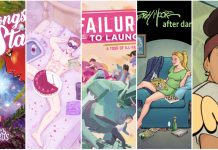
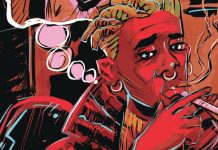


Comments are closed.